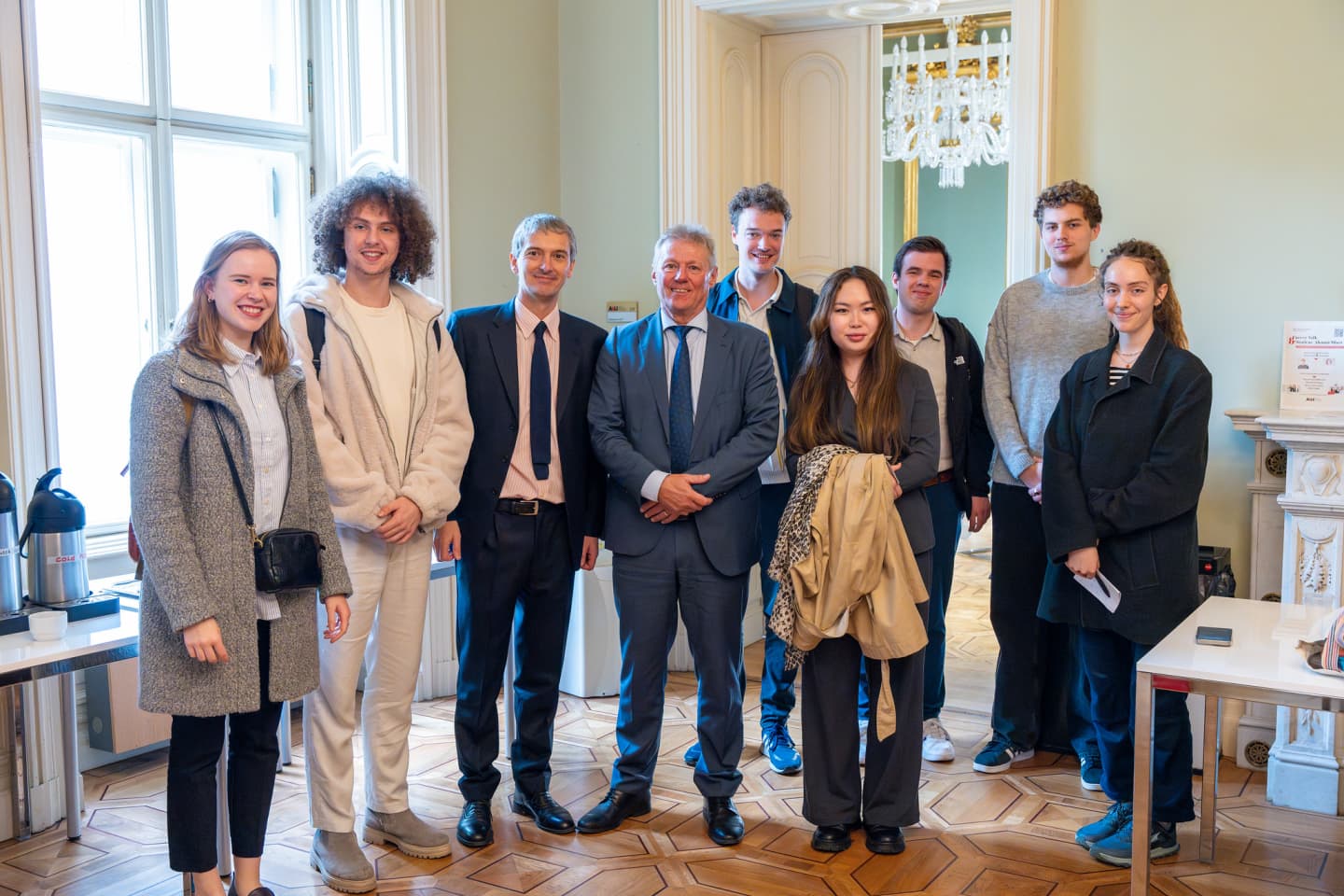An Interview with Søren Kelstrup, the Ambassador of Denmark to the Czech Republic

On Tuesday, October 22, 2024, Søren Kelstrup, the Ambassador of Denmark to the Czech Republic, visited AAU as part of the university’s Meet the Ambassador series to discuss Denmark’s diplomatic traditions, its role in contemporary global affairs, and the challenges it faces on both regional and international stages.
Kelstrup has been working in the Danish Foreign Service since 1992, serving as ambassador to the Czech Republic since 2021. In the course of his career, he has been at the forefront of Denmark’s foreign policy initiatives and instrumental in navigating its complex international relationships. His talk offered a deeper understanding of his country’s history and strategic priorities, its contributions to international cooperation, and its stance on pressing global issues.
Following his talk and a Q & A session in which attendees were able to interact with the ambassador directly, his excellency sat down for an interview to discuss his thoughts on how an aspiring diplomat might best prepare for their future and to further explore the role of Denmark and the EU on the international stage. What follows is a slightly abridged transcript of that interview.
Interviewer (INT): Good afternoon, everyone. I’m Giacomo Piffanelli, a third year student at the School of International Relations & Diplomacy at Anglo American University.Today, I’m here with His Excellency, Søren Kelstrup, who is now the representative of Denmark to the Czech Republic. Thank you very much, Ambassador, for being here today.
Søren Kelstrup (SK): Thank you for the invitation.
INT: Given the leadership of Denmark on global issues, such as those you mentioned before–climate change, human rights, and international trade–how do you think young people should look to the leadership of your country?
SK: Well, I think that my country is trying to play its part in what we see as the best way forward for the globe, which is cooperation, mutual understanding, and constructive contribution to progress in politics, economy, and climate change. So when you ask me what other countries can learn, I think that all countries can, from their own perspective, participate proactively, in promoting peace and cooperation in the world.
And there will be different interests. If we take the green transition, my country has one approach, other countries will have other approaches. But if we all chip in, we will find the necessary compromises and the necessary way forward.
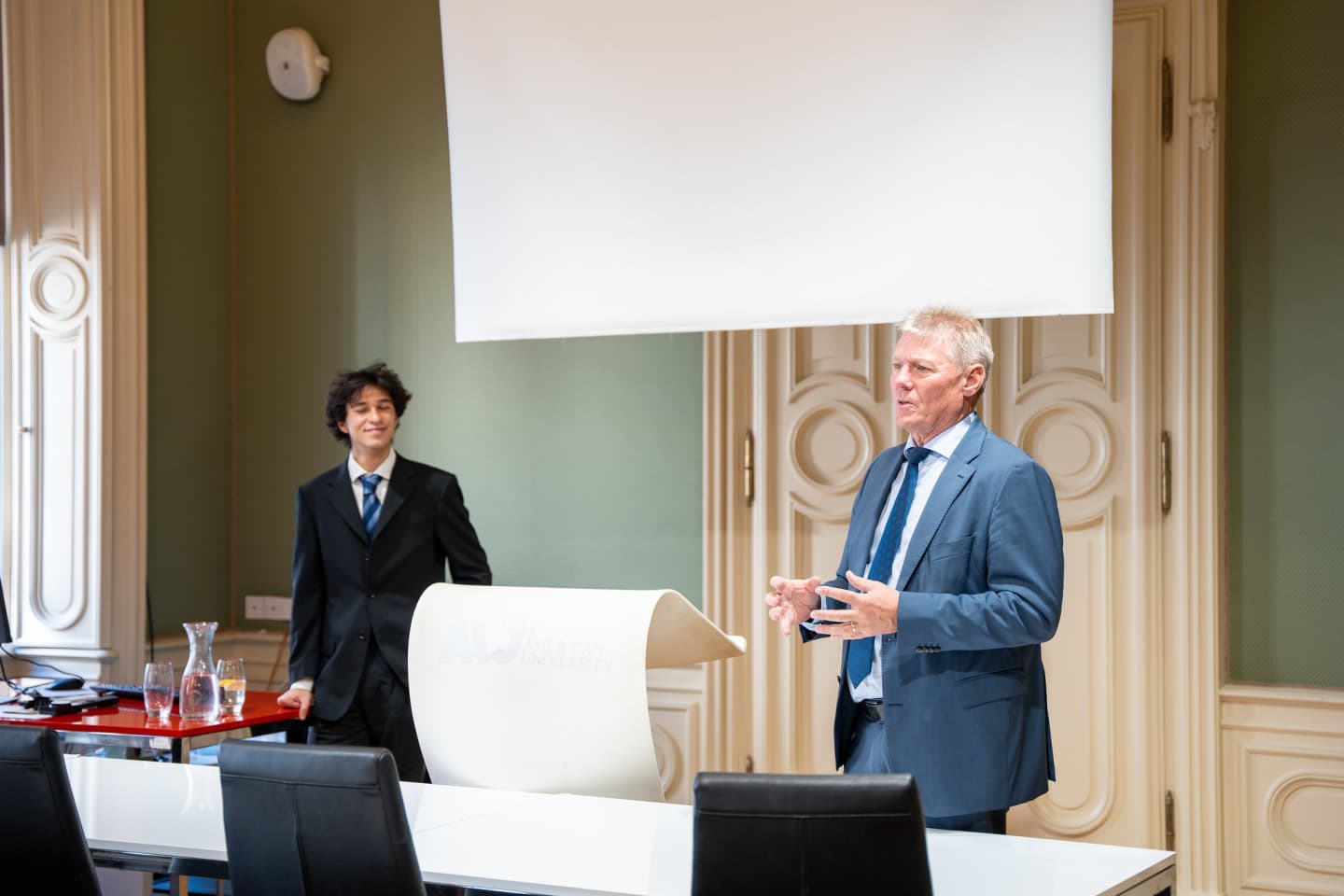
INT: Obviously, diplomats have an important role in [chipping in]. What should be the skill should a diplomat have to achieve this important goal?
SK: I think the skills of a diplomat [are], first and foremost, curiosity and interest in substance and respect for other people, for other views on the world, and the skill to be able to communicate about difficult issues also. Diplomats are, by definition, people who can talk together even though they come from very different views. It’s very rare that you cut diplomatic relations–even countries with big disagreements, like my own country and Russia right now, maintain diplomatic relations in order to be able to talk together.
I have a colleague from the Danish ministry in Moscow, and there’s also a Russian ambassador in Denmark. We are certainly not agreeing on very much these days. But nevertheless, I think an [important] skill is also to be able to talk with your enemies, so to say, or your adversaries, about very difficult topics.
INT: [Would you say it] is also a helpful strategy to learn how to cooperate with people from different backgrounds?
SK: Yes, I think the more you understand and meet and see and talk with different cultures and visit different countries, the less fear you will have of changes and opening your own perspective, the more you will be able to to have a real eye-to-eye discussion with those people that you need to solve problems with.
So I think, you could say that in this world of today, where mistrust, in my view, is growing among peoples, between countries but also people inside countries, where mistrust is growing, misinformation is growing, and prejudice is growing, I think it’s extremely important to do even more of this work, to try to understand other cultures and meet people from other cultures and be open to their perspective on the world.
INT: Is there also an important approach that students should have if they want to pursue this kind of career?
SK: I think so. I think, at least in my country, it is viewed as a strength if you have experience from international study. Therefore, it’s encouraged, it’s financially supported, it’s politically..supported that young people, as part of their development while studying, also go abroad to study in other countries.
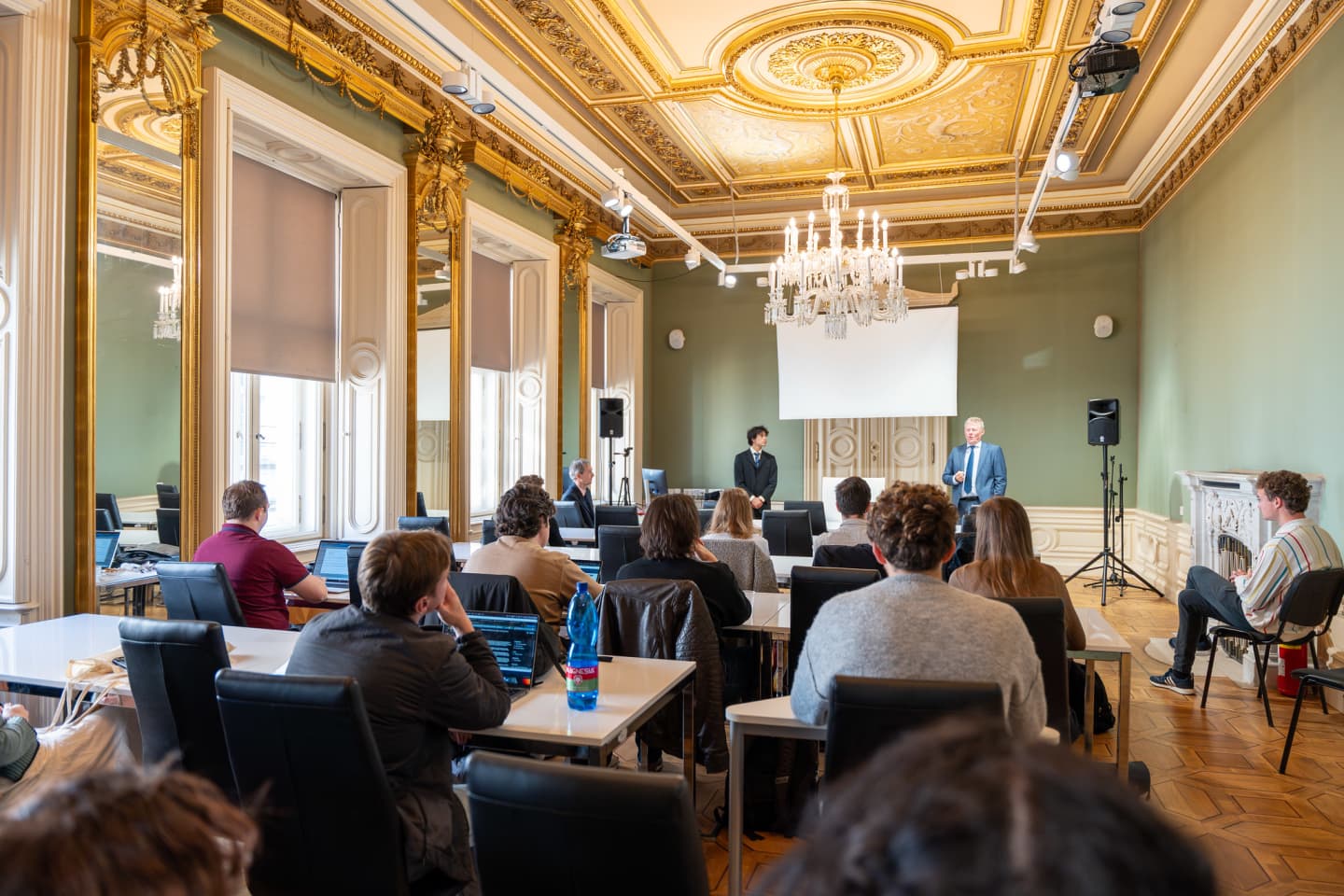
INT: Do you think that having a dialogue and talking is always the best way to [for countries to come to agreement]?
SK: I definitely do. I think the less you know of the person you are interacting with, the more prone you will be to develop the bad sides of a relationship. I think, instead, you should always look at the commonalities of people. Try to find areas where you have the same interests or the same values…Find the commonalities of what you want to achieve in life, how you want the world to look. And…at least I think in 99% of situations, you will find that you can start from the same assumption: that you both both want peace and you both want the best for your family and your loved ones. And you both want to have development, economic progress, and a safe world.
INT: [Considering the imperialist foreign policy of many European countries over the course of history, how can these countries now involve themselves in world affairs in a productive and respectful manner?]
SK: Fortunately, we are past that now. The Brits still have a commonwealth, and Denmark still has a kingdom with three parts, but imperialism, as such, is over. Today, we live in a world…where countries should decide themselves which alliances, organizations they want to belong to and where people should democratically decide which direction the country should go. So, from a European perspective, I think we are on the right track, and what we need to do as Europe is to speak with one voice.
If we want to be heard in a world with China and the US right now distancing themselves from Europe, because they have quicker economic growth, they have sustainability developing quicker, because they invest and support and subsidize industrial development, if we want to have influence there, we need to speak with one voice in Europe and agree on things in Europe. And then I think we have been pretty successful at that.
The important thing now is that through every crisis, we should always come out stronger. And throughout history, Europe has come out stronger. When we had in the 80s the economic crisis, we had the internal market as a result of that. And that has been a huge benefit for Europe. When we had Covid crisis, don’t forget, it was European, rather Turkish immigrants to Germany, but it was a European scientist team that created that. They got the breakthrough and then COVID was another example that we always come out stronger in Europe. I believe we will also do that this time.
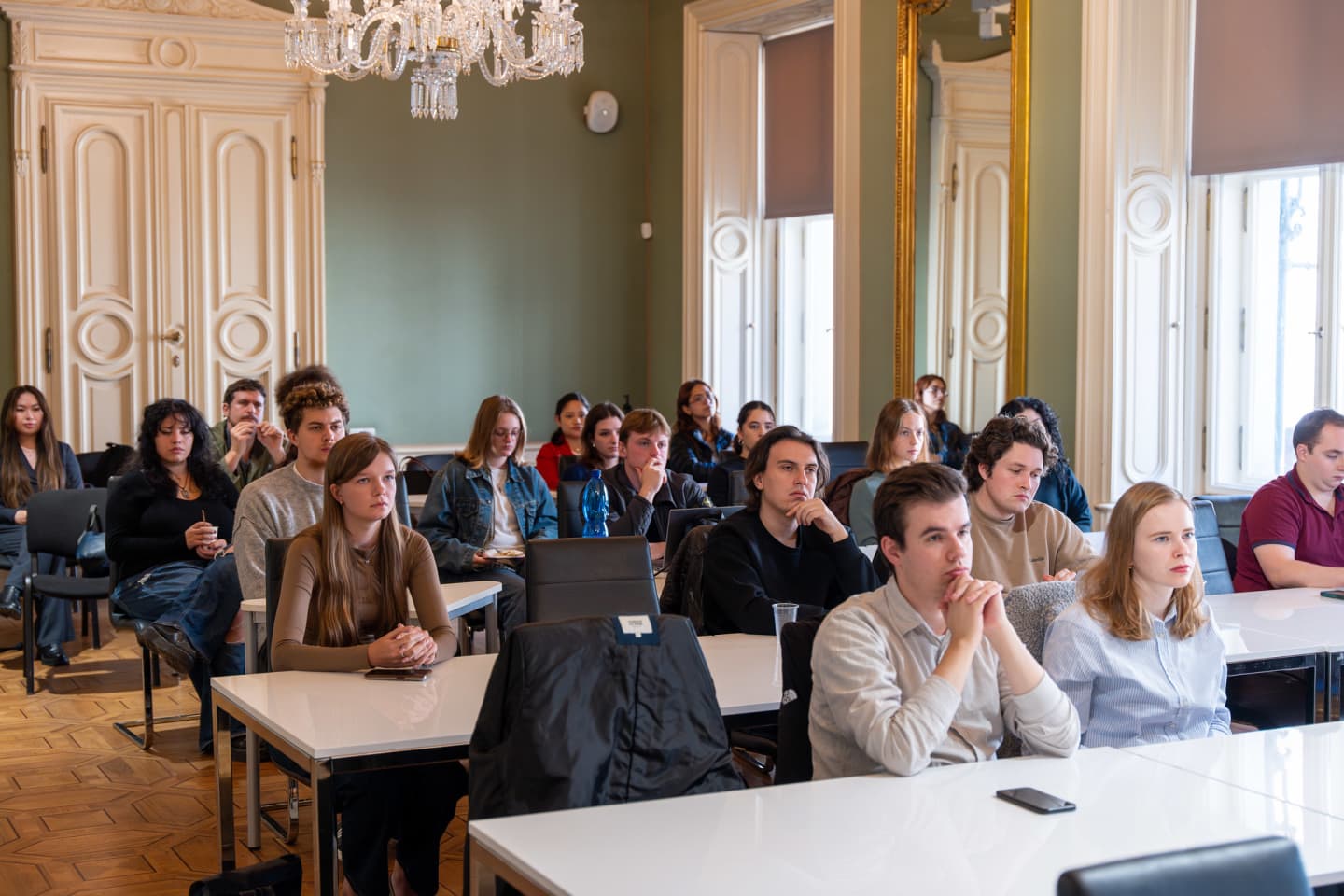
INT: And do you also believe that this is possible without staying under the American umbrella?
SK: That’s a good question, because we have, in the near future, a US presidential election. And I wonder if both Harris and Trump might be US presidents that might want to move further in the direction of focusing on Asia, rather than Europe. So Europe has to get used to taking care, to a high degree, of its own security and not just expect that the Americans will take care of that. We have to invest in our defense industries. We have to invest in military strengthening and to take a bigger part of responsibility for our own security.
INT: Do you think…that European foreign policy should adapt and [start looking more towards the] Eurasian perspective than a strictly Western one?
SK: Well, I think when it comes to the US, we should try, with all we have, to maintain unity with the US, because the US is still a superpower that, militarily, will be a crucial player for our security, but also economically and democratically, a friend and ally in promoting peaceful, development with the values that we in Europe support–democracy, human rights, all these things–which are under threat now.
And when you ask about China, I think China is not only an economic competitor, it’s also a systemic rival, which shows another way of developing a society with a more authoritarian approach to things and not a democratic thing, less respect for human rights and values. So in that sense, at least for the near future, it can never be a friendly competition with China. It will be a fierce economic competition in order to be able to maintain strength, to ensure our own security, our own values, but also, maybe in the coming years, a more tough political battle, because China is a strategic rival which does not want democracy to be the prevailing model in the world.
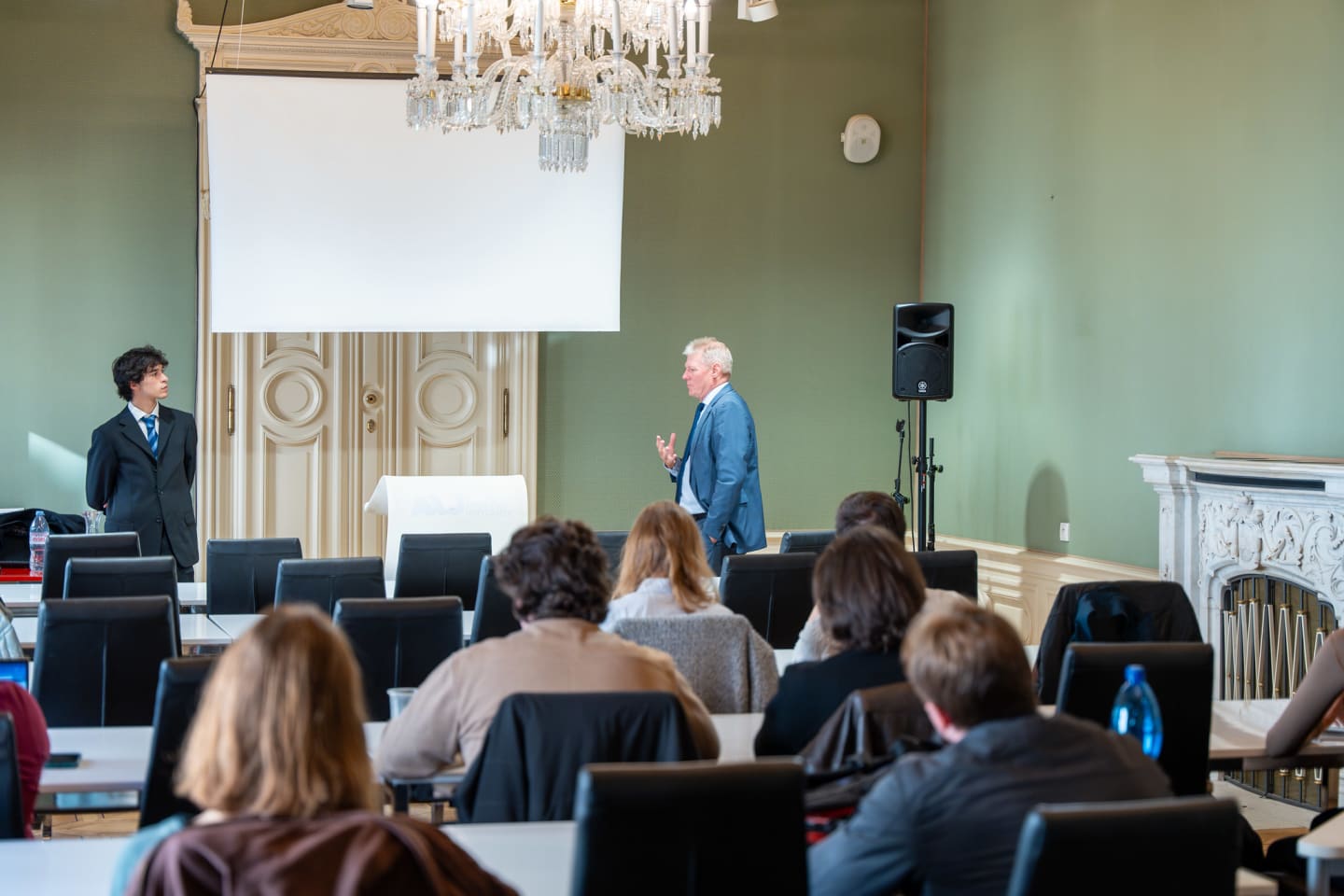
INT: What is the role of Denmark with respect to the current Gaza-Israel conflict?
SK: First we should at home make sure that the conflict doesn’t spread to our own society. We have Jews living in Denmark. We also have a lot of Muslim immigrants, including Palestinians. We have had several incidents. And, we should try to stop that because the conflict should not be repeated in Denmark. The Jews living there or the Palestinians living there should not be considered as Jews supporting Netanyahu and Palestinians supporting Hamas. They’re individuals who are Danish citizens like everybody else. And they should not look at each other as enemies, but rather as people with different ethnic roots. So this is one way we try to have peace in Denmark and not import the conflict, so to say.
Denmark is now, from 1st of January, a member of the UN Security Council, and we will in the Security Council be the honest broker, we will listen to the views of different countries and try to promote the solutions that are possible. But we should always…look at ways to find commonalities and find common interests, like peace. So I think if you ask my government right now what it can do, it will say, like many other European countries, let’s start with a ceasefire. Let’s then sit down…We have ignored this conflict for maybe too many years. Maybe the international community needs to take a bigger responsibility in separating the parts, maybe also in promoting the old UN idea of a two-state solution.
INT: Would you say that the one in 1948 could be the best solution?
SK: I’m not an expert on the Middle East, so I would hesitate to try to come up with solutions here. But I would just say that I see a role for small countries like Denmark through cooperations like the EU and through countries, which is the big majority in the United Nations, who want peace in Israel, so that we can play our small constructive part. And our Prime Minister has said that if there would be a two-state solution with some kind of international involvement, for instance, UN troops, then we would be ready to play a part in that.
INT: I couldn’t agree more with you, ambassador. I can’t thank you enough for coming and for giving me the opportunity to interview you on so many interesting topics. Thank you very much.
SK: Thank you very much for the invitation, and I’d be happy to come back one day. Good luck with your careers.
